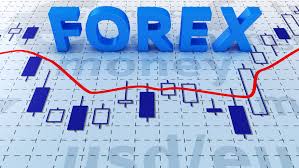Economic Issues
Growth of Forex Trading in Nigeria
The growth of Forex Trading in Nigeria is fueled by a combination of technological advancements, economic necessity, and increased financial awareness. While challenges such as regulatory issues and scams persist, the industry continues to expand as traders become more knowledgeable and experienced. With proper regulation, improved trading education, and enhanced technological innovations, Forex trading will remain a viable and lucrative financial activity for Nigerians in the years to come.

Over the past decade, Forex trading in Nigeria has experienced an unprecedented rise, attracting traders from various backgrounds, including young professionals, students, and even retirees. The surge in participation is attributed to increased internet access, financial literacy, and the economic need to explore alternative income sources. As one of Africa’s largest economies, Nigeria provides a fertile ground for Forex trading, with its population actively engaging in currency speculation to hedge against inflation and economic instability.
Forex trading is the act of buying and selling currency pairs to make a profit based on market fluctuations. Many Nigerian traders have turned to technical analysis tools, including chart patterns such as the engulfing candlestick, which helps in identifying potential market reversals. The adoption of such strategies has increased trading success rates, making Forex trading an attractive venture for Nigerians looking to diversify their income sources.
Factors Driving the Growth of Forex Trading in Nigeria
Several factors have contributed to the increasing popularity of Forex Trading in Nigeria, making it one of the fastest-growing financial markets in the country. Some of the key factors include:
- Increased Internet Penetration: With more than 109 million internet users in Nigeria, online Forex trading platforms have become more accessible to the masses. Mobile trading applications and web-based platforms allow traders to execute trades from anywhere, further boosting participation.
- Economic Diversification: Due to fluctuations in the Nigerian economy, many individuals seek alternative sources of income. Forex trading presents an opportunity to earn in foreign currencies, reducing reliance on the local naira.
- Regulatory Developments: While Forex trading in Nigeria is not yet fully regulated, increased awareness and oversight by the Central Bank of Nigeria (CBN) and the Securities and Exchange Commission (SEC) have improved the legitimacy of the industry. Many international brokers now cater to Nigerian traders, ensuring transparency and security.
- Youth Involvement: Nigeria has a large youth population that is tech-savvy and eager to explore online financial markets. The accessibility of free and paid Forex education has encouraged more young people to participate in trading activities.
- Advancements in Trading Technology: The availability of trading tools such as MetaTrader 4 (MT4) and MetaTrader 5 (MT5), automated trading bots, and advanced charting tools like the engulfing candlestick pattern analysis have made Forex trading more precise and efficient.
Challenges Facing Forex Trading in Nigeria
Despite its rapid growth, Forex trading in Nigeria comes with several challenges that traders must navigate to succeed in the industry. Some of these challenges include:
- Lack of Regulation and Scams: While some international brokers operate legally in Nigeria, there are also fraudulent schemes that take advantage of unsuspecting traders. Many people fall victim to Ponzi schemes disguised as Forex trading platforms.
- Poor Trading Education: Many beginners jump into Forex trading without proper knowledge, leading to significant losses. Although there are online resources available, the lack of structured and accredited training programs remains a hurdle for many aspiring traders.
- Limited Local Brokerage Services: Most Nigerian traders rely on international brokers since local brokerage firms are scarce. This reliance on foreign brokers raises concerns about fund security, withdrawal delays, and regulatory oversight.
- Unstable Exchange Rates: Nigeria’s fluctuating exchange rates impact traders who deposit and withdraw funds in naira. Market volatility and currency depreciation affect the purchasing power of traders and can lead to unexpected losses.
- Internet and Power Supply Issues: Trading Forex requires constant internet access and a stable power supply. Unfortunately, many Nigerian traders struggle with unreliable electricity and internet services, which can disrupt trading activities and lead to losses.
The Future of Forex Trading in Nigeria
The future of Forex Trading in Nigeria looks promising as more traders enter the market and technological advancements continue to simplify trading. Several trends indicate that the industry will continue to expand in the coming years:
- Improved Regulation: The Nigerian government and financial regulators are taking steps to formalize the Forex industry, which will help eliminate fraudulent brokers and protect traders. Stricter regulations will lead to a more transparent and secure trading environment.
- Increased Financial Literacy: More organizations and educational institutions are offering Forex trading courses, allowing traders to make informed decisions and minimize losses. The growing number of online webinars, mentorship programs, and trading communities is fostering a culture of knowledge sharing.
- Emergence of Local Brokers: As demand for Forex trading grows, more local brokerage firms are likely to emerge, offering better services tailored to Nigerian traders. This will reduce reliance on international brokers and improve accessibility.
- Integration of AI and Automation: The use of Artificial Intelligence (AI) and algorithmic trading is gaining traction among Nigerian traders. Automated trading systems and AI-driven market analysis will enhance efficiency and profitability in Forex trading.
- Broader Adoption of Cryptocurrency and Blockchain: The integration of cryptocurrency trading with Forex trading platforms provides Nigerian traders with additional opportunities to diversify their portfolios. Blockchain technology can also enhance transparency and security in transactions.
Conclusion
The growth of Forex Trading in Nigeria is fueled by a combination of technological advancements, economic necessity, and increased financial awareness. While challenges such as regulatory issues and scams persist, the industry continues to expand as traders become more knowledgeable and experienced. With proper regulation, improved trading education, and enhanced technological innovations, Forex trading will remain a viable and lucrative financial activity for Nigerians in the years to come.










